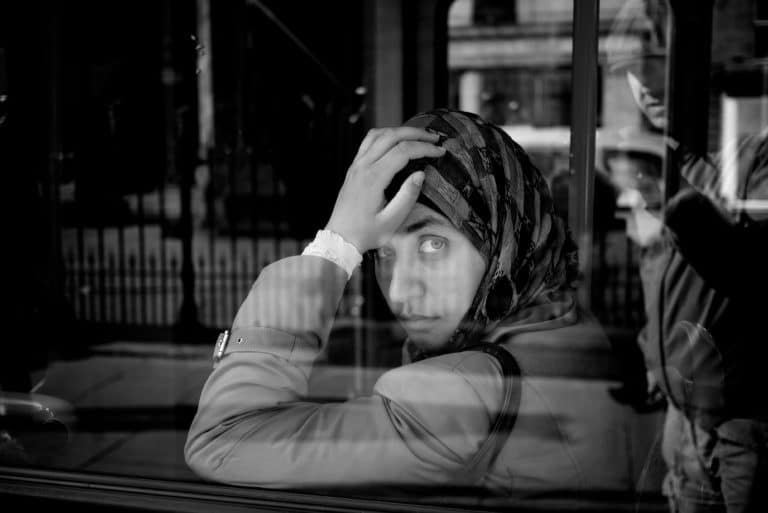To Be White and Reckon with the Death of Michael Brown
No doubt by now you have heard the news about the death of 18-year-old Michael Brown in Ferguson, Missouri. About the protests. About the police response.
You may even be one of countless Americans who has expressed your horror over what’s happened — by attending a vigil, perhaps; by retweeting #iftheygunnedmedown; over dinner with people you love. You may have shaken your head as you stated the horrifying and obvious, “It’s 2014 and this is still happening?!”
And by you, I am specifically talking to white people. When confronted with a moment like Michael Brown’s death, white America is forced to reckon with racism. We are compelled to feel something, to say something, to signal our outrage about the continued existence of deadly prejudice.
Non-white America, of course, is eternally reckoning, but for white Americans, a moment like this can feel like a time apart, an opportunity to recommit oneself to anti-racist attitudes and actions. That’s powerful, potentially courageous even.
But too often I fear that we look to express outrage, in part, so that we may perform our identity as ‘one of the good ones.’ If we condemn the acts of that “evil police officer in a small, backwards town,” particularly if we do so in a public way, we feel the comfort of separateness and even a small smugness that we are positioning ourselves on the right side of history.
I don’t believe in evil and I don’t believe in good, at least not that kind, when it comes to race in this country. I believe we, white Americans, are still — 150 years after slavery ended — dabbling in racial courage, specializing in amnesia, flummoxed by the acts of our ancestors and our responsibility for the past, and continuously struggling to wrap our minds around the structural racism that is our present.
I’m reminded of Ta-Nehisi Coates important words:
“Now we have half-stepped away from our long centuries of despoilment, promising, ‘Never again.’ But still we are haunted. It is as though we have run up a credit-card bill and, having pledged to charge no more, remain befuddled that the balance does not disappear. The effects of that balance, interest accruing daily, are all around us.”
White America rarely talks to our own ghosts on this matter. We don’t unpack our own “invisible knapsacks,” in the words of Peggy McIntosh, nearly enough. It’s easier to point the finger at the truly ignorant and violent among us and call them the bad guys.
To be sure, they deserve all the shame that we can muster; they deserve their punishment. But in a country that imprisons one out of three black men at some point in their lives, even “punishment” is a strange medicine for deadly racism.
The only way to honor Michael Brown and his family, to honor all Americans who reckon with the scourges of racism every single day, is to own that we may not be murderers, but we are inheritors. We must talk to our ugliest ghosts. We must work on strategies to dismantle structural racism. We must express our outrage at what is happening out there — in Ferguson, in Staten Island, in Oakland. But, we must also investigate what is happening in here, inside every one of us — our own unexamined privilege, our own patronizing cure-alls, our own fears. We are not bad. We are not good. We are part of the tragic story and the opportunity for transformation.
About the photo: Lesley McSpadden, the mother of slain teenager Michael Brown, joins a capacity crowd of guests at Greater St. Mark Missionary Baptist Church to discuss the killing of her son and the civil unrest resulting from his death in St Louis, Missouri.

